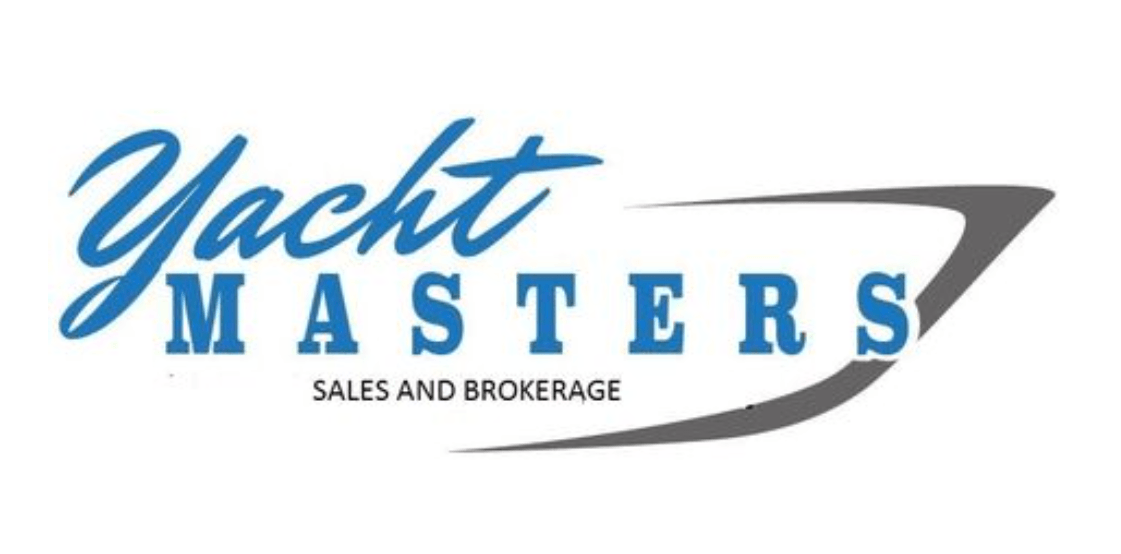Blog
Blog

November 14, 2023
The sun dips below the horizon, casting a golden sheen on the waters, as a yacht gently bobs in the marina—the same yacht that's been your companion on numerous sea adventures. But there comes a time when the tide turns, and the decision to sell your cherished vessel surfaces. Selling a yacht is no small feat; it's an intricate process that calls for a strategic approach, patience, and a touch of finesse. This article will navigate you through the steps to successfully selling your yacht, ensuring a smooth transition from listing to closing. Step 1: Decision to Sell The decision to sell a yacht often comes with mixed emotions. Whether it's due to lifestyle changes, the desire to upgrade, or simply the end of a seafaring chapter, it's important to approach the sale as a business transaction. Detach from the sentiment and focus on the practical steps needed to secure a sale. Step 2: Assessing the Yacht's Value Understanding the market value of your yacht is essential. Factors such as age, brand, maintenance history, and current market trends will influence the price. Hiring a professional appraiser or consulting with a yacht broker can provide a realistic estimate, ensuring your listing price is competitive yet profitable. Step 3: Preparing the Yacht for Sale First impressions are as crucial at sea as they are on land. Preparing your yacht for sale involves more than a simple cleanup. It may include servicing engines, repairing any damage, a fresh coat of paint, and updating interiors. The goal is to present a yacht that looks well-maintained and ready for immediate enjoyment. Step 4: Choosing a Sales Approach When it comes to selling a yacht, you have options: sell it yourself, list it with a yacht broker, or offer it through a yacht dealer who might accept it as a trade-in. Each has its merits, but employing a yacht broker can often provide the widest market exposure and the best chance for a timely and lucrative sale. Step 5: Marketing Your Yacht Effective marketing can significantly hasten the sale of your yacht. High-quality photos, videos, detailed descriptions, and listing on the right platforms are crucial. Your broker can list your yacht on multiple channels, including online yacht sale portals, forums, and at boat shows. Step 6: Fielding Offers and Negotiations Be prepared for negotiations. Potential buyers will almost always propose an offer below the asking price. Patience is key, as is a willingness to negotiate. However, know the lowest price you're willing to accept. Your broker can help you understand which offers are serious and worth considering. Step 7: The Sea Trial and Survey Serious buyers will request a sea trial and an independent survey to assess the yacht's condition. While the buyer typically pays for these, as the seller, you'll need to make the arrangements. Any issues found may become points of negotiation, so be prepared for this possibility. Step 8: The Paperwork Transferring ownership of a yacht involves a significant amount of paperwork. This can include the bill of sale, de-registration from your name, settling any outstanding liens, and ensuring compliance with maritime laws. A broker can assist with the process to ensure everything is in order for a smooth transfer. Step 9: Closing the Sale Closing the sale will involve a final agreement on the price, signing the necessary contracts, and handling the financial transactions. Depending on the jurisdiction, this might also involve escrow services to securely transfer the funds. Step 10: After the Sale Once the sale is finalized, you may have obligations such as delivering the yacht to the new owner, removing personal items, and cancelling insurance and docking contracts. Ensure you've addressed all these details to avoid any post-sale complications. Conclusion Selling a yacht can be as complex as navigating through choppy waters. However, with the right preparation, a clear understanding of the process, and professional guidance, it can also be an incredibly rewarding experience. By meticulously preparing your yacht for the market, pricing it correctly, marketing effectively, and navigating the final negotiations and paperwork with care, you'll be well on your way to a successful sale. Just as every journey at sea has its end, so too does the journey with your yacht. And with the right approach, the final transaction can be as smooth sailing as the many voyages that preceded it.

November 9, 2023
The allure of the open sea, the freedom to explore coastal havens, and the tranquility of sunsets over water; buying a yacht promises all this and more. It is a statement of luxury and an unparalleled lifestyle choice. However, the process of purchasing a yacht involves a sequence of meticulous steps, careful consideration, and sometimes, a considerable time commitment. It is not merely a transaction but a journey into the realm of the elite. This article will guide you through the complex but exhilarating process of buying a yacht. Step 1: Defining Your Yachting Needs Before embarking on your search, clarity on what you seek in a yacht is essential. Ask yourself some fundamental questions: What size of yacht suits your needs? Are you looking for a motor yacht or a sailing yacht? What will be the primary use - is it for family cruising, entertaining business associates, or long-term living? What is your budget not just for the purchase, but also for the ongoing maintenance and operation? These questions form the keel of your yacht-buying journey. Step 2: Engaging a Yacht Broker With a vision in mind, the next step is to engage a yacht broker. Yacht brokers are akin to real estate agents but for vessels. They are equipped with extensive knowledge of the market, negotiation skills, and the legal intricacies of the yacht purchasing process. A broker can pinpoint yachts that align with your preferences, provide access to a broader market, including private listings, and can often bring you better deals than if you were going it alone. Step 3: Market Research and Viewings Now, the search begins. Your broker will present you with a selection of yachts that match your criteria. This is where market research is invaluable. You will need to understand what is available within your budget and how it aligns with your desires. Once you've shortlisted potential yachts, your broker will arrange viewings. During these viewings, look beyond the aesthetics; consider the yacht's condition, maintenance history, and any potential for customization. Step 4: Making an Offer When you've found the yacht that calls to you, it's time to make an offer. This is a nuanced process that your broker will lead. The offer will usually be below the asking price, and there will be some back-and-forth negotiation. The initial offer is made in the form of a Purchase Agreement, which is contingent upon a sea trial and survey. Step 5: Sea Trial and Survey The sea trial is the equivalent of a test drive. It allows you to assess the yacht's performance on the water. The survey, conducted by a marine surveyor, is a thorough inspection of the yacht's structural and operational condition. It's an essential step to ensure there are no hidden issues that could become costly repairs later. Step 6: Negotiation and Purchase Agreement Following the sea trial and survey, you may need to renegotiate the offer based on any findings. If defects are discovered, you can ask for repairs or a reduction in price. Once the final price is agreed upon, you sign a Purchase Agreement, solidifying the terms of sale, including any contingencies on financing or the sale of another vessel, if applicable. Step 7: Finalizing the Sale With the agreement signed, the next phase involves finalizing the sale. This includes taking care of the administrative and legal processes, such as transferring the title, registering the yacht, securing insurance, and possibly setting up an offshore corporation to manage the yacht's ownership. Step 8: After-Sale Management Once the yacht is officially yours, there's still work to be done. You'll need to consider where the yacht will be berthed, who will captain and crew it, and establish a schedule for maintenance and servicing. Many yacht owners also enter into management agreements with companies that handle the day-to-day operation of the vessel. Step 9: Enjoying Your Yacht Finally, it's time to enjoy the fruits of your investment. Whether it's exploring exotic destinations or enjoying sunset cocktails on deck, owning a yacht offers a unique and rewarding lifestyle. Conclusion Buying a yacht is a significant investment and a luxury that comes with its complexities. It requires a sound understanding of what you want, professional assistance, patience, and a passion for the sea. Each step, from initial interest to final purchase, should be approached with diligence and care, ensuring that when you finally set sail, it's with a sense of achievement and anticipation for the adventures that lie ahead. With the right approach, buying a yacht can be a smooth sail into the horizon of your dreams.

November 6, 2023
In the expansive blue oceans, yachts are the epitome of luxury, freedom, and opulence. A yacht is not merely a vessel; it's a floating sanctuary that provides an escape from the mundane. It's a statement of achievement and a playground for the adventurous spirit. But purchasing or selling one of these majestic sea dwellings is no simple task—it is a complex transaction requiring expertise, experience, and a deep understanding of the maritime market. Enter the yacht broker, a pivotal figure who ensures that the journey towards owning or selling a yacht is as smooth as the serene waters on a calm sailing day. What Is a Yacht Broker? A yacht broker acts as an intermediary between buyers and sellers of yachts. They are to yachts what real estate agents are to homes. These professionals possess an in-depth knowledge of the boating industry, including the latest market trends, pricing, and the wide range of yacht models available. Their expertise extends beyond the initial sale; they understand the nuances of yacht operation, maintenance, and the myriad legalities involved in yacht ownership and transfer. The Broker’s Expertise A proficient yacht broker provides a suite of services and brings a multitude of skills to the table: Market Knowledge: They have their fingers on the pulse of the market, providing clients with current information on pricing, availability, and the best value options. Wide Network: Brokers maintain an extensive network of contacts, including sellers, buyers, shipyard personnel, and other brokers, making it easier to find the right match for their clients' needs. Negotiation Skills: Yacht transactions involve significant sums of money. Brokers are adept negotiators who work to ensure that both buyer and seller reach a mutually beneficial agreement. Paperwork and Legalities: The paperwork involved in buying or selling a yacht is extensive. A yacht broker is well-versed in the necessary contracts, insurance policies, licenses, and tax implications. Sea Trials and Inspections: They arrange and oversee sea trials and surveys to ensure the yacht is in the promised condition and meets all safety standards. The Buying Process For buyers, yacht brokers are invaluable in helping navigate the complexities of yacht purchase. They assist in defining the buyer's needs, which involves choosing the right type, size, and style of yacht that fits their lifestyle and budget. Brokers also facilitate the entire purchasing process, from identifying potential yachts to arranging viewings, negotiating the price, and handling the closing process. For the uninitiated buyer, a yacht broker is a guiding light through the intricate process of acquisition. The Selling Process Sellers benefit from a broker's ability to market a yacht effectively. They know how to present a yacht to the market, create compelling listings, and reach potential buyers worldwide. They also advise on the best ways to prepare a yacht for sale to fetch the best price. From setting the asking price to finalizing the sale, the broker is an indispensable ally. Choosing the Right Broker Selecting the right yacht broker is crucial. Prospective clients should look for brokers who are members of professional associations, such as the International Yacht Brokers Association (IYBA), which enforce a strict code of ethics and standards. The broker's reputation, experience, and track record are also important factors to consider. The Future of Yachting As the yachting industry continues to evolve with advancements in technology and design, the role of the yacht broker becomes even more significant. Sustainability and eco-friendly yachts are gaining popularity, and brokers are now advising on the best practices and technologies for environmentally conscious yachting. Conclusion The yacht broker is the captain of the yacht transaction, steering clients through the exciting but often complex process of buying or selling a yacht. Their specialized knowledge, skills, and passion for boating are essential in bridging the gap between aspiration and ownership. Whether one dreams of cruising the Mediterranean or exploring the remote islands of the South Pacific, a yacht broker is the essential navigator for the journey. As the tides of luxury ebb and flow, the yacht broker remains an indispensable figure, ensuring that for buyers and sellers alike, the voyage is as rewarding as the destination.
